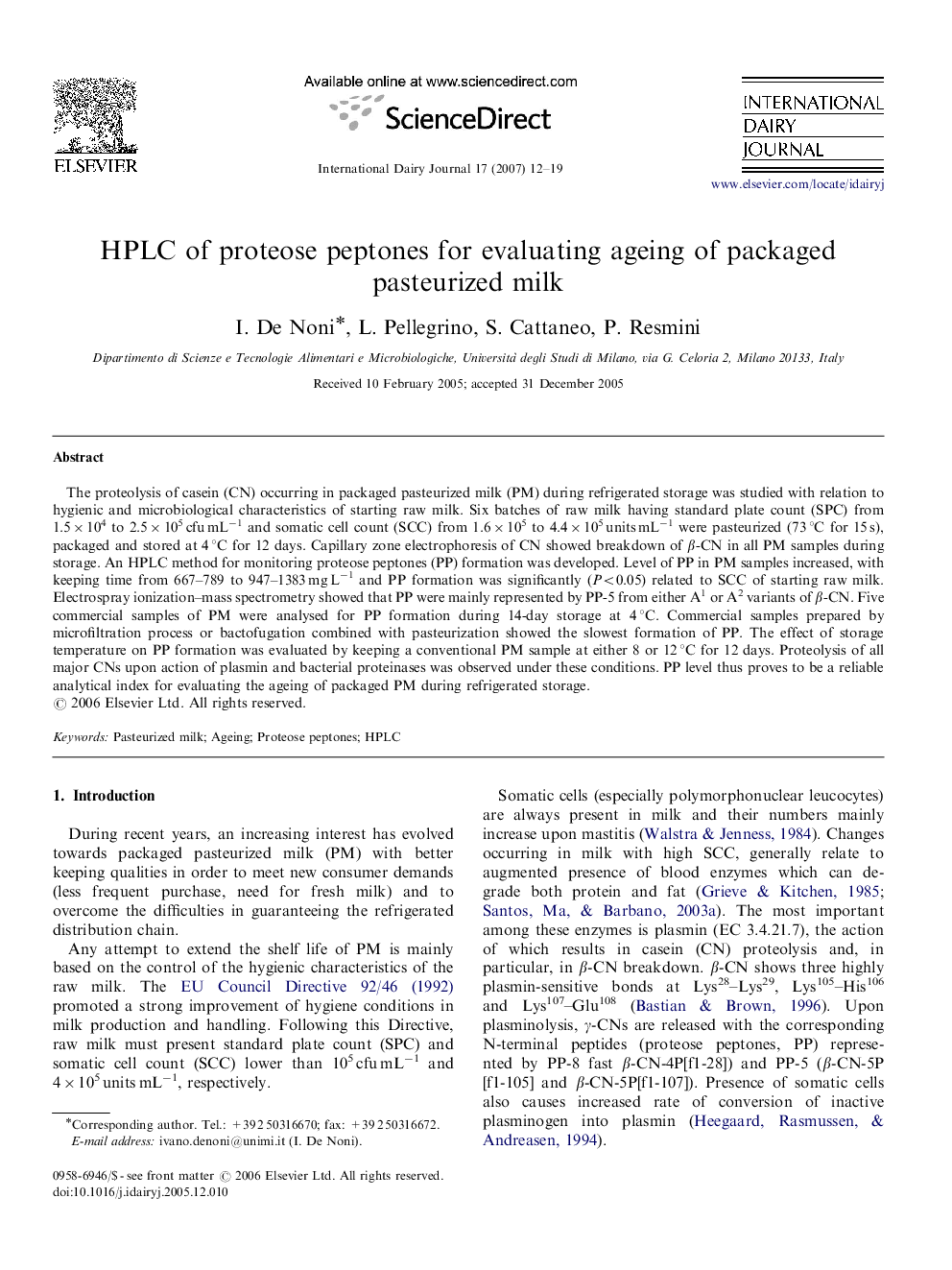| Article ID | Journal | Published Year | Pages | File Type |
|---|---|---|---|---|
| 2435719 | International Dairy Journal | 2007 | 8 Pages |
Abstract
The proteolysis of casein (CN) occurring in packaged pasteurized milk (PM) during refrigerated storage was studied with relation to hygienic and microbiological characteristics of starting raw milk. Six batches of raw milk having standard plate count (SPC) from 1.5Ã104 to 2.5Ã105 cfu mLâ1 and somatic cell count (SCC) from 1.6Ã105 to 4.4Ã105 units mLâ1 were pasteurized (73 °C for 15 s), packaged and stored at 4 °C for 12 days. Capillary zone electrophoresis of CN showed breakdown of β-CN in all PM samples during storage. An HPLC method for monitoring proteose peptones (PP) formation was developed. Level of PP in PM samples increased, with keeping time from 667-789 to 947-1383 mg Lâ1 and PP formation was significantly (P<0.05) related to SCC of starting raw milk. Electrospray ionization-mass spectrometry showed that PP were mainly represented by PP-5 from either A1 or A2 variants of β-CN. Five commercial samples of PM were analysed for PP formation during 14-day storage at 4 °C. Commercial samples prepared by microfiltration process or bactofugation combined with pasteurization showed the slowest formation of PP. The effect of storage temperature on PP formation was evaluated by keeping a conventional PM sample at either 8 or 12 °C for 12 days. Proteolysis of all major CNs upon action of plasmin and bacterial proteinases was observed under these conditions. PP level thus proves to be a reliable analytical index for evaluating the ageing of packaged PM during refrigerated storage.
Keywords
Related Topics
Life Sciences
Agricultural and Biological Sciences
Food Science
Authors
I. De Noni, L. Pellegrino, S. Cattaneo, P. Resmini,
